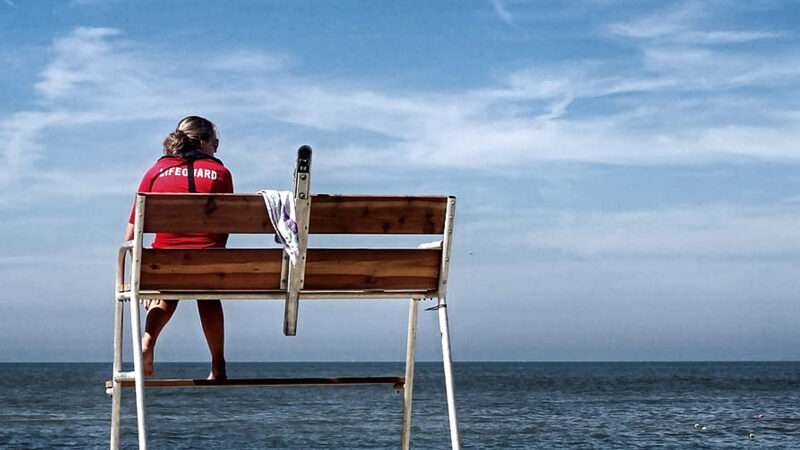
Memorial Day ushers in the unofficial start of summer. We're still three weeks off from the summer solstice, but for many kids (and kids at heart!) a more nostalgic marker is here. The pools are open.
Unfortunately, however, fledgling swimmers once again have to deal with some rain on their parade in the form of the ongoing lifeguard shortage, which, at this point, is starting to sound like the song that never ends. It was set in motion by the COVID-19 pandemic. There are simply not enough people, namely teens, who want to do this work, we're told. But there is a major piece of the puzzle, which is both underappreciated and underreported, that in part explains why there is suddenly a dearth of qualified applicants: immigration restrictions.
In June 2020, former President Donald Trump issued an executive order suspending foreign work visas. That included the J-1 visa, also known as the exchange visitor visa, which, as it turns out, is a major vehicle for filling vacant lifeguard spots at pools across the country. Before COVID, the American Lifeguard Association (ALA) used to train about 300,000 new recruits a year, 50,000 of which came from J-1 visa recipients.
The ban expired in April 2021. But the effects, including the massive backlog in applications it created, reverberated. Bernard Fisher II, the director of health and safety at the ALA, told ABC News last June that "the lack of the J-1 visa candidates coming in as strongly as they they were" has prevented the association from reaching "pre pandemic enrollment times." He continued: "So with that said, we have a very serious problem in enrollment now." In 2022, the U.S. State Department issued 284,486 J-1 visas in total, which is over 50,000 shy of levels before the pandemic. And in the years before the pandemic, the U.S. began subjecting applicants to more rigorous vetting and bureaucracy, slowing down an already-inefficient process, as red tape often does.
That lifeguarding came to be filled somewhat heavily by immigrants was, ironically, a product of the country's last lifeguarding shortage. Twenty years ago, as more pools popped up, immigrants came to address a need not satisfied by the inadequate number of applicants in the states. Everything old is new again.
Today, some posit that teens are declining lifeguarding work in favor of higher pay in retail or at restaurants. It's not that qualified people don't exist, per se. It's that they want to do other things, and we don't have people readily available to supplant them. That quandary has sent some pools to desperate lengths, including in Philadelphia, where the city has allegedly hired lifeguards who cannot swim. Grim.
To add insult to injury, many foreign lifeguards come over from Eastern Europe, an area that has been partially upended by Russia's war in Ukraine.
The post Have a Lifeguard Shortage at Your Pool? Here's a Big, Underreported Reason Why appeared first on Reason.com.







